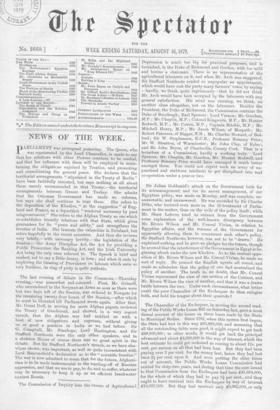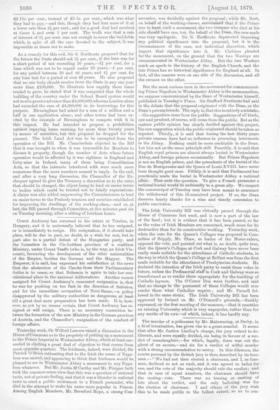The Chancellor of the Exchequer, in moving the second read-
ing of the Public Works Loans Bill on Saturday last, gave a most dismal account of the losses on these loans made by the State to Municipal Bodies. Since 1792, when this system first began, the State had lent in this way 285,883,000, and assuming that all the outstanding debts were good, it might expect to got back £89,900,000; in other words, it would get back the principal advanced and about 24,000,000 in the way of interest, which the best estimate ho could get reckoned as coming to about 12s. per cent. per annum on all that had been lent. But they had been paying over 3 per cent. for the money lent, hence they had lost least 2i per cent. upon it. And even putting the older times out of account, the Public Works Loans Commission had existed for sixty-two years, and during that time the sum issued to that Commission from the Exchequer had been 241,694,000, for the whole of which they had to pay 3} per cent., and they ought to have received into the Exchequer by way of interest 210,937,000. But they had received only 0,362,000, or only £2 15s. per cent., instead of £3 6s. per cent., which was what they had to pay,—and this, though they had lent none of it at a lower rate than 3i- per cent., and or a good deal had received at times 4, and even 5 per cent. The truth was that a rate of interest of 31 per cent, was not enovigh to cover the bad debts which, in spite of all the care devoted to the subject, it was impossible at times not to make.



































